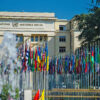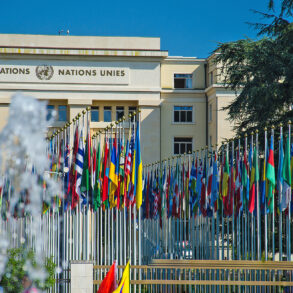Sports enthusiasm in the Islamic world has long since been integrated into a global industry.
(Islamic Times) – The World Cup in Qatar or Muslimas wearing headscarves to participate in sporting competitions, the fascination with sport has visibly taken hold of the Islamic world. And: For many Muslims, physical training in clubs or gyms is an integral part of their everyday life.
Sport in the Muslim world has been globally integrated
Sporting enthusiasm in the Islamic world has long since been integrated into a global industry. Few believers see anything forbidden in sporting affirmation; on the contrary, taking care of one’s fitness is a commandment for the majority of all.
Islamic sources mention and emphasise certain sports. For example, there is a tradition that describes the Messenger (may Allah bless him and grant him peace) in a wrestling match. The strongest wrestler of his tribe, Rugana, challenged him to a match and promised to become a Muslim if he was defeated.
The Prophet ended the contest victoriously and the defeated man professed Islam. In another hadith, transmitted by Ibn Umar, Muhammad, peace be upon him, is quoted as saying: “Teach your children swimming, archery and horse riding!”

Photo: Shutterstock
Sport should not be an end in itself
Sport, much like travel, is not an end according to Islamic belief but is practised with the intention of remembering the Creator. The body is a gift and should be kept in good condition for reasons of gratitude.
Sport practised together is more important than individual sport. Schiller’s famous sentence that the mind shapes the body also applies to us. Of course, the influence of the history of sport, which originates in the West with the legacy of the Greeks, on the practice of Muslims cannot be overlooked. The Olympic idea plays an important role in this.
To understand the history of the Games, a visit to the Olympic Museum of Lausanne, famously located in a park on Lake Geneva, is a good idea. The Olympic flame burns in front of the building and next to it is the monument to the French educator, historian, and sports official Pierre de Coubertin (1863-1937).
Coubertin was convinced that new approaches to education were indispensable, and that sports training should embrace the whole person in the unity of body, mind, and soul. His credo: “The most important thing in life is not to win, but to fight. The essential thing is not to have won, but to have fought well.”
Under the impression of the excavations at Olympia in the 19th century, he advocated the revival of the event and founded the International Olympic Committee in 1894. A change of form was necessary for a modern interpretation of the idea.
The ancient Greeks had no concept of “sport.” The competition originally served the physical training of the soldiers and the praise of the gods. The winners received an olive branch as a symbol of respect and recognition.

Foto: Marie-Lan Nguyen, via Wikimedia Commons | Licence: Creative Commons
The modern Olympic idea was political from the beginning
The modern Olympic idea was political from the beginning, resisting national egoisms and wanting to contribute to peace and international understanding.
The fact that this mission was difficult was shown by the awarding of the event in the 1930s. Asked by a French journalist why he supported the Berlin Nazi Games, Coubertin replied that the most important thing was that they were celebrated grandly. It did not matter whether they were used as a tourist promotion for Southern California, as in California in 1932, or as an advertisement for a political system, as in Germany in 1936.
This naive attitude is hardly imaginable today. The host cities are obliged to act in a politically correct manner and to organise their games in an ecologically responsible way. Whether these requirements are fulfilled and whether economic interests undermine the meaning of the event is a matter of constant dispute.

Photo: Picryl.com
Origins in the Lebensreform
It was the Lebensreform movement at the turn of the century that developed sport into a mass phenomenon. Urban life and the triumph of technology increasingly defined modern man, the urge towards a different, healthier life increased.
Added to this was the longing for emotional experiences that spectacularly staged sporting events triggered. Sport in the form of a mass movement seems to be a kind of substitute for religion for many enthusiasts.
The spiritual background of physical training occupies a prominent place in Peter Sloterdijk’s book Du musst Dein Leben ändern. The philosopher traces the history of the development of games in the light of their ancient and religious model. He writes about the profane reality of sport between self-optimisation, commerce, and mass mobilisation in the modern age. His conclusion: “The Olympic idea has only been able to survive as a secular cult without a serious superstructure.”
The athletic imperative that echoes throughout the 20th century is of fundamental importance to the philosopher: “Wherever this imperative is heard, we are culturally on the right side, because we then remain in the Greek space where sport is practised as a matter of beauty.”
Only who thinks about the ancient origins of our body ideals in the gym or on the running track? For many people, sport is a counterbalance to a world of work characterised by hectic and stress. The urge for self-optimisation is an integral part of the zeitgeist today.
The museum in Lausanne stages the history of the Olympic phenomenon almost perfectly with great technical effort. The unforgettable moments of the athletes and the spectacular opening ceremonies are recalled on video screens.
What is missing, however, is a critical reappraisal of the scandals surrounding the commercialisation of the Games or an examination of the influence of advertising on the ideals of physicality. The question of the significance of sport in our lives is raised again and again.











